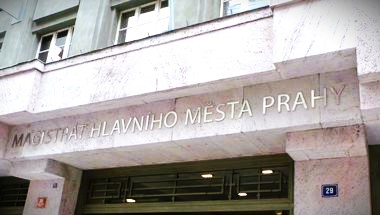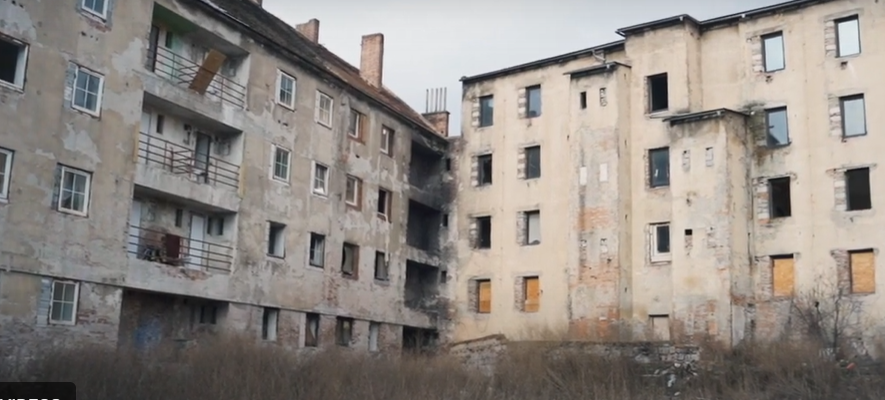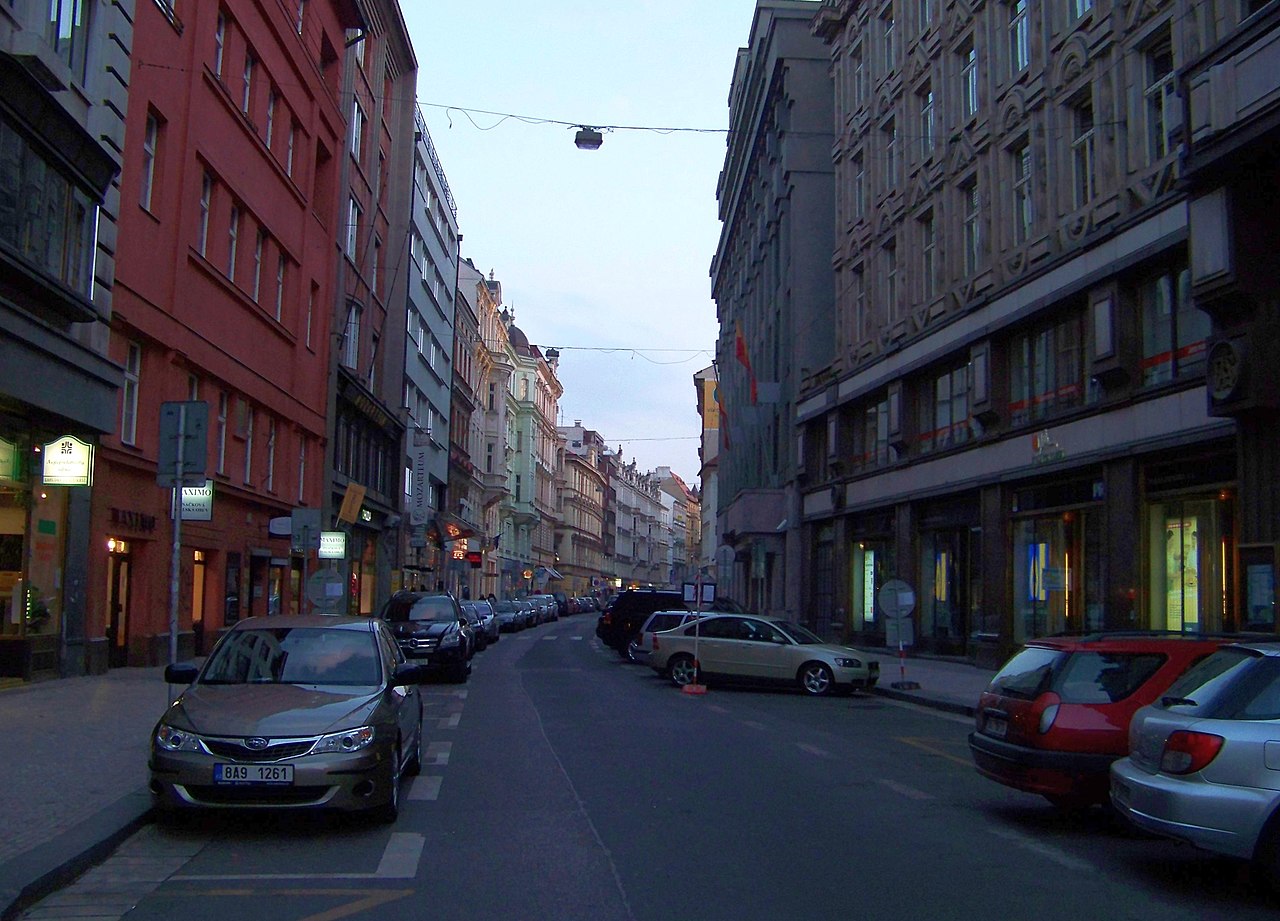
Exclusion of Minorities in Czechia: Seat of the Magistrát in Prague
The exclusion of minorities in Czechia is not a coincidence but the result of political decisions and institutional practices that reinforce inequality. With precarious contracts, housing exclusion, and tolerance of discrimination, a system is perpetuated that hits Roma, refugees, and other vulnerable groups the hardest.
An electoral déjà vu: recycled promises on the campaign trail
In the days before the elections, the exclusion of minorities in Czechia is rarely mentioned. Nevertheless, it runs through every political speech. Andrej Babiš’s populist ANO promises to “dissolve ghettos with education and employment.” The centrist STAN movement insists on “equality in access to housing.” The Pirates, with a progressive profile, defend “zero segregation in schools and enforcement of the Antidiscrimination Act.”
At first glance, there seems to be programmatic diversity. In reality, the messages are almost identical: more flats, more integration, more equality. It is a litany repeated every four years, always with the same slogan and without visible results in people’s lives.
A great omission: exclusion of minorities in Czechia
Amid all the discourse, one word never appears: structural racism. No party commits to confronting it directly, even though it manifests itself every day in housing offices, courts, municipal police, or real estate agencies.
Politicians speak of ghettos as if they were natural disasters — “they don’t disappear on their own,” warns ANO. However, they omit the essential: those neighborhoods did not arise out of nothing. They are the product of political decisions and decades of planned segregation.
Magistráty: architects of the exclusion of minorities in Czechia
Behind that reality stand the municipalities, true architects of the exclusion of minorities in Czechia. Through their housing departments, they decide who enters the public housing stock and under what conditions. For years they have applied criteria that concentrate the most vulnerable families in deteriorated blocks, far from services and without public investment.
And this does not affect Roma alone. It also strikes single mothers, impoverished elderly people, refugees, and low-income migrants. The mechanism is almost always the same: temporary three- or six-month contracts that keep tenants in permanent insecurity. Those who demand repairs, who submit written complaints, who dare to denounce abuses… risk being left without renewal.
Opacity seals the trap. Many decisions are communicated verbally or in ambiguous letters, without a legal basis and with no real possibility of appeal. Thus the magistrát acts as both judge and party, administering social housing at its discretion and reinforcing prejudices about who “deserves” to live in an ordinary neighborhood.
Prague: a capital far from inclusion
Behind this reality are the municipalities, the driving forces behind legal exclusion Through their housing departments, they decide who enters the public housing stock and under what conditions. For years, they have applied criteria that concentrate the most vulnerable families in deteriorated blocks, far from services and without public investment.
Insecurity and opacity in housing
This does not affect Roma alone. It also strikes single mothers, impoverished elderly people, refugees, and low-income migrants. As a result, the mechanism is almost always the same: temporary three- or six-month contracts that keep tenants in permanent insecurity. Those who demand repairs, submit written complaints, or denounce abuses risk losing renewal.
Moreover, opacity closes the trap. Many decisions are communicated verbally or in ambiguous letters, without a legal basis or a real possibility of appeal. Therefore, the magistrát acts as both judge and party, administering social housing at its discretion and reinforcing prejudices about who “deserves” to live in an ordinary neighborhood.
Exclusion under the shadow of corruption
The case of Martin Kubelka, former director of the Prague Magistrát, reveals the other face of municipal administration: while minorities are pressured with precarious contracts or eviction threats, high officials shield themselves with privileges. Kubelka was dismissed in March 2025 by decision of Mayor Bohuslav Svoboda (ODS), with the consent of the Interior Minister, after it was revealed that he had granted his assistant a bonus of CZK 857,000 and provided free parking permits even to vehicles registered in his wife’s name. The police opened an investigation for possible abuse of public power.
The dismissal came after months of scandals: accusations of harassment of subordinate officials, alleged manipulation of traffic fines, and clashes with the governing coalition over audits of municipal contracts. Far from being an isolated episode, this case confirms that the institution controlling the country’s largest housing stock operates with opacity, favoritism, and clientelist networks, while administering the precariousness of the most vulnerable.
Kubelka in the eye of the storm
According to local media, former municipal director Martin Kubelka was investigated last year for an alleged corruption case linked to public works.
Million-crown contracts under suspicion
Police from the National Center Against Organized Crime (NCOZ) reviewed documents from Prague City Hall regarding the repair of the Barrandovský Bridge and the construction of the Dvorecký Bridge. Together, these contracts totaled CZK 1.5 billion.
No formal charges
So far no one has been indicted, but suspicions continue to hang over the management of the Prague Magistrát.
Municipalities and the systematic exclusion of Roma

A pattern across Czech cities
What happens in Prague is replicated, with its own variations, in other cities. In Ústí nad Labem, the Předlice neighborhood was allowed to decay until it became an uninhabitable skeleton. When the buildings were declared in ruins, instead of offering dignified solutions, families were displaced to other equally deteriorated areas.
Meanwhile, in Most, the blocks of Chanov were transformed into an official ghetto. Elevators remain out of service, hot water is intermittent, facades go without maintenance, and stigma weighs like a sentence. Saying that you live there is enough to be discarded in a job or school interview.
Ostrava’s different recipe, same outcome
In Ostrava, the recipe has been different but with the same result. The Přívoz area brings together old houses divided into tiny apartments, with shared bathrooms and inflated rents. As a result, many of those properties were sold to private intermediaries who now profit from families’ vulnerability, while the municipality looks the other way.
A pattern with variations: four cities, one and the same marginalization
Each city applies a different method. By contrast, the logic is identical: to keep entire communities outside “respectable” neighborhoods.
Prague relies on precarious contracts. Ústí nad Labem uses demolition as an excuse for displacement. Most normalizes concentration as if Chanov were a permanent social experiment. Meanwhile, Ostrava transforms poverty into business through covert privatization.
Four models, one policy: segregation disguised as management. The tools change — temporary contracts, ruins, concentration, speculation — but the result is always the same: reinforced ghettos, administered poverty, and citizens turned into second-class neighbors.
How social benefits become a tool of pressure
The link between the magistráty and labor offices (úřad práce) adds an even harsher layer of control. When Roma families denounce undignified housing conditions, the response is rarely a solution. Instead, punishment follows.
In practice, the magistrát communicates with social services and benefits are withheld until tenants accept the imposed conditions. This pressure tactic would never be applied systematically to the Czech majority, yet it is the norm in the treatment of minorities.
In the case of recognized refugees, the situation is no better. The possibility of moving is not even considered. The only outcome they face is direct eviction, with no real possibility of appeal. Therefore, the message is clear: those who dare to demand their rights risk losing everything.
Mortgages for some, barriers for others
The mortgage system is another mirror of inequality. While white Czechs routinely access housing loans, ethnic minorities rarely obtain approval.
Banks apply invisible filters that reinforce exclusion. A history of precarious income, temporary contracts, or simple ethnic prejudice is enough to close the door.
Thus homeownership becomes a privilege reserved for the majority, while minorities remain trapped in precarious public or private rentals.
Romea.cz on housing and racism.
PIS: the breach of an international commitment
Discrimination even extends to the PIS program. It was created specifically for refugees protected by the Geneva Conventions, to which Czechia is a signatory.
Although the regulations prohibit withdrawing those flats without justified reason, municipalities act arbitrarily. Most seriously, the Ministry of the Interior, responsible for implementing the program, washes its hands entirely.
Therefore, the state that promised protection to those fleeing international persecution ends up acting as an accomplice to their abandonment.
The violation of basic rights of minorities — both Roma and refugees — is profoundly alarming. It reveals a policy of exclusion that erodes the very principles of the rule of law in the Czech Republic.
Centra: the enforcement arm of housing exclusion
The public company Centra a.s., charged with managing much of Prague’s municipal housing stock, in practice functions as the enforcement arm of the magistrát. Its practices have been repeatedly denounced by vulnerable tenants, especially Roma and refugees.
Systematic neglect of repairs
For years, Centra a.s. has been accused of refusing to undertake structural repairs that are the owner’s responsibility. As a result, the burden is shifted onto the most vulnerable tenants. When someone demands that the law be respected or refuses to pay for repairs that do not correspond to them, the response is usually the same: eviction threats or refusal to renew the contract.
Opaque billing and retaliation
The invoices issued are another opaque area. Tenants have reported charges without clear breakdowns, payments demanded without receipts, and a system that punishes any attempt to file a written complaint. Consequently, grievances often lead to retaliation: labels of “problem tenant” and direct pressure to leave the flat.
In the end, within this mechanism, Centra is not a mere administrator. It is the tool through which the magistrát keeps minorities under control, ensuring that the most vulnerable pay more — economically and psychologically — for a precarious roof.
NGOs and conflicts of interest
The role of some NGOs is not free of shadows. Although they present themselves as defenders of the vulnerable, there are documented cases in which they refused to provide assistance when the complaint was directed against the magistrát.
When donors silence complaints
In one such episode, a particular NGO refused to process a complaint from a vulnerable person. They openly admitted that the magistrát was one of their donors. As a result, this statement reflects a direct conflict of interest: the very institution identified as responsible for abuses appears as the financier of the organization meant to hold it accountable.
At the same time, Centra a.s., the public real-estate company acting as the magistrát’s enforcement arm, has been identified as one of the most aggressive actors against vulnerable tenants. Its role is to administer municipal apartments. However, in practice, it is the one applying pressure, eviction threats, and unclear payment demands that keep many families in precariousness.
Exclusion reinforced by European funds
The Roma community has repeatedly denounced in forums and public notes that these organizations often exclude them from real assistance. Frequently, they align with the accused institution even when evidence of violations exists.
This paradox is serious. These NGOs manage European funds intended to support minorities and vulnerable people, yet most of the money is consumed by administrative salaries. In the majority of cases, those positions are held by members of the ethnic majority who do not face the same structural housing problems.
Moreover, the European Court of Auditors has warned about the lack of transparency in the use of these resources. A report by Validity NGO also revealed that some projects have even reinforced segregation.
NGOs: When Oversight Fails
Therefore, the result is a system in which those who should act as a counterweight end up reinforcing institutional silence. Vulnerable groups — Roma, refugees, and migrants — are once again left without any real protection.
Real solutions nobody dares to promise
What is needed is something else entirely. A guaranteed-rent policy with public quotas would oblige municipalities to reserve part of their stock for vulnerable families, with stable, open-ended contracts.
There should also be stiff sanctions against real-estate agencies and employers who discriminate. Fines must hurt, and repeat offenders should lose their licenses.
At the same time, Roma communities themselves should be given real voice and decision-making power in managing the funds that bear their name. Not token consultations for photo opportunities, but budgets managed directly by them.
Above all, there must be radical transparency in the use of European resources: who receives them, how much, and for what. Today, most of that money ends up with consultants and bureaucrats who live off managing inequality without solving it.
Why they don’t do it
The answer is simple: because addressing these issues carries a very high political cost. Confronting structural racism means challenging the bureaucracy that votes and the municipalities that control land. Punishing real-estate agencies and employers severely means upsetting powerful lobbies. And giving real power to Roma communities would mean taking the monopoly away from NGOs and state agencies that have built careers managing “inclusion” from above.
That is why campaign speeches prefer the easy way: repeating soft promises. The hard path threatens privileges; the easy path preserves the status quo. And in today’s Czechia, it is still more profitable to win votes by stoking fear of the “other” than by committing to serious equality policies.
Epilogue: recycled promises and rising extremisms
Electoral promises do not fail for lack of ideas. They fail because they are made for an electorate that is not interested in coexistence. These are the same voters who do not want to share a neighborhood with Roma or foreigners, and the parties know it.
Therefore, proposals sound good during the campaign but never become real policies.
Meanwhile, at the other end of the political board, forces like Tomio Okamura’s SPD or the renewed KSČM under Kateřina Konečná exploit that vacuum. They stoke resentment and offer even more radical “solutions.”
Okamura, with his xenophobic rhetoric, has built a career blaming minorities and migrants for all social ills. Konečná, from a renewed communist left, offers a discourse that mixes populism with nostalgia but also avoids breaking with exclusion.
Alliance in Czechia: the far right of Okamura and the communist Konečná.
Thus, Czech politics remains trapped between recycled promises and extremist speeches, with minorities always in the line of fire.
